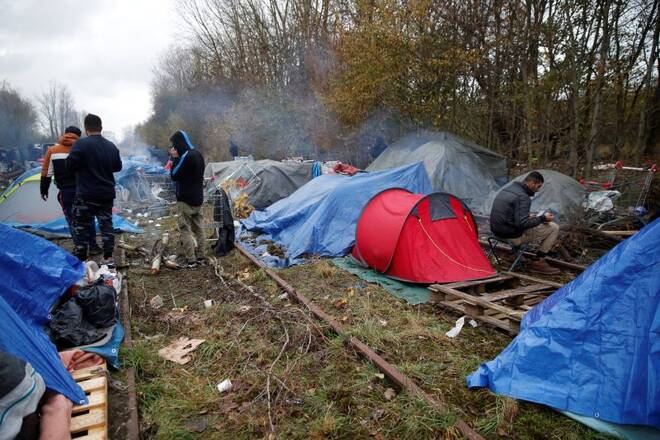Advertisement
Advertisement
Choosing between ‘bad and worse’: a migrant’s dilemma after Channel tragedy
By:
By Layli Foroudi DUNKIRK, France (Reuters) - For the past month, Mahdi, 31, has been holed up in a makeshift camp in northern France, waiting for his place in a dinghy run by people smugglers to reach Britain. The drowning of 27 migrants like him in the Channel has not curbed his resolve.
By Layli Foroudi
DUNKIRK, France (Reuters) – For the past month, Mahdi, 31, has been holed up in a makeshift camp in northern France, waiting for his place in a dinghy run by people smugglers to reach Britain. The drowning of 27 migrants like him in the Channel has not curbed his resolve.
Mahdi said he was forced to flee Iran because he felt his political activism for a Kurdish party had placed his life in danger. Wednesday’s tragedy was sobering, he said, but changed nothing.
“I don’t know how to choose between bad and worse, but I have no other option. I can’t go back and I haven’t changed my mind,” Mahdi told Reuters inside the camp which runs along an old rail line in the port town of Dunkirk.
Like many of the roughly 2,000 migrants hunkered down in squalid conditions along France’s northern-most stretch of coast, Mahdi expressed no desire to stay in France.
He views Britain as having a more diverse population, and finds English a more familiar language, he said, before adding: “they protect asylum seekers better there.”
France says it is the determination of migrants to make the perilous crossing across one of the world’s busiest shipping lanes that underscores the need for deeper European cooperation to prevent them reaching the Channel in the first instance.
“Once they’re on the shores of the Channel, it’s too late,” President Emmanuel Macron said during a trip to Croatia.
Britain disagrees, and has complained for years France is not doing enough to staunch the flow of migrants.
Calm sea conditions prompted a surge in dinghy launches this month because the people traffickers and migrants know the window of opportunity will soon close for much of the winter.
Eating a lunch of stew and sweet tea provided by a local charity, Afghan teenager Jihen Zeb he had paid smugglers 2,500 euros for a place in a dinghy.
Zeb’s first three attempts had been in vain, he said. Once his dinghy’s outboard motor failed, and twice he was thwarted by police.
Wednesday’s drownings had subdued his enthusiasm to try again soon, and the 16-year-old said he was hoping he might be able to recover his money from the traffickers.
“There are too many problems: police problem, rain problem, water problem,” he said in English. He left Afghanistan because of curbs of civil freedoms under the Taliban.
Asked why he wanted to reach Britain, he said simply: “France is no problem, but there is no cricket. I love cricket.”
(Writing by Richard Lough; Editing by Peter Graff)
About the Author
Reuterscontributor
Reuters, the news and media division of Thomson Reuters, is the world’s largest international multimedia news provider reaching more than one billion people every day. Reuters provides trusted business, financial, national, and international news to professionals via Thomson Reuters desktops, the world's media organizations, and directly to consumers at Reuters.com and via Reuters TV. Learn more about Thomson Reuters products:
Advertisement
